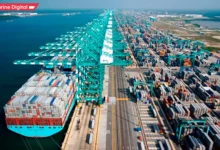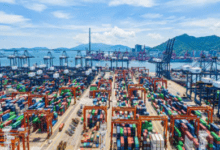
10 Roles of Tourism in Economic Development in Nigeria
See the The Role of Tourism in Economic Development in Nigeria. Tourism is the activity of people traveling to and staying in places outside their usual environment for leisure, business or other purposes for not more than one consecutive year.
Mathieson and Wall (1982) created a good working definition of tourism as “the temporary movement of people to destinations outside their normal places of work and residence, the activities undertaken during their stay in those destinations, and the facilities created to cater to their needs.”
👉 Relocate to Canada Today!
Live, Study and Work in Canada. No Payment is Required! Hurry Now click here to Apply >> Immigrate to CanadaThe word “tour” is derived from the Latin ‘tornare’ and the Greek ‘tornos,’ meaning ‘a lathe or circle; the movement around a central point or axis. When the word tour and the suffixes -ism and -ist are combined, they suggest the action of movement around a circle.
Therefore, like a circle, a tour represents a journey that is a round trip, i.e., the act of leaving and then returning to the original starting point, and therefore, one who takes such a journey can be called a tourist.
Tourism is a dynamic and competitive industry that requires the ability to adapt constantly to customers’ changing needs and desires, as the customer’s satisfaction, safety and enjoyment are particularly the focus of tourism businesses.
In most developed and developing nations of the world, tourism is a major source of employment, gross domestic product (GDP) or national income, income to the tourism promoters and the tourism destination points/communities and a catalyst for socio-economic development of the communities concerned through social infrastructural amenities like electricity, water supply, communication, transportation, motor-able roads and health improvement facilities.
All sectors of the economy play an important role in making a stable and long running development. Tourism is one of the sectors which plays an important role in development and also generates foreign revenues.

This sector is peaceful and reflects the nature and beauty of the country. It helps people of far flung areas to promote their culture and norms, it also provide opportunity to country to make a better image around the world.
1. INCOME GENERATION:
If properly used, tourism generated income can be tremendously beneficial to the host country and it’s local communities.
👉 Relocate to Canada Today!
Live, Study and Work in Canada. No Payment is Required! Hurry Now click here to Apply >> Immigrate to CanadaTourism generated income can be used on a national and local level to better education, improve infrastructure, to fund conservation efforts, and to promote more responsible tourism.
See: Notable Tourist Attractions in Benin
2. EMPLOYMENT:
The tourism industry encompasses many different areas, so it also creates jobs in many different areas.
With tourism comes hotels, restaurants, car rental agencies, tour companies, service stations, souvenir shops, sports equipment rentals, and much more.
All of this creates many different levels of employment for people in a given community.
3. BENEFIT LOCAL PEOPLE:
The introduction and development of tourism allows local people an opportunity for economic and educational growth that would not otherwise be available.
In addition, it allows both the tourist and the local community a chance to experience other cultures, which broadens understanding.
4. RECREATION:
Travel based recreation provides relief from the monotony of daily routine. A change in place and climate helps a traveler to recharge his mind, body and spirit.
5. ECONOMIC BENEFITS:
Tourism can provide direct jobs to the community, such as tour guides or hotel housekeeping. Indirect employment is generated through other industries such as agriculture, food production, and retail.
Visitors’ expenditure generates income for the local community and can lead to the alleviation of poverty in countries which are heavily reliant on tourism.
See: Notable Tourist Attractions in Ilorin and their Native Folkloric Beliefs
6. ENVIRONMENTAL BENEFITS:
Tourism provides financial support for the conservation of ecosystems and natural resource management, making the destination more authentic and desirable to visitors.
It also adds more value to the local tourism business.
7. DIVERSIFICATION:
In addition to bringing prosperity to an economy, it also allows an economy to develop a new form of income.
This acts as an insurance policy in case of hard times, because the additional dollars coming in can help support traditional
industries in case they come under financial pressure.
8. INFRASTRUCTURE:
The additional revenue that comes into a community also benefits the local council or governments. It means more tax dollars, which allows public projects to be launched or developed.
This means the infrastructure improves, with new roads being built, parks developed and public spaces improved.
The better facilities brings in more visitors, but is a fantastic benefit to local residents, especially when there is enough revenue to build new airports, schools and hospitals, which all support the economic development even further
See: 5 Tourist attraction centres you should visit in south-western Nigeria
9. POVERTY REDUCTION:
Poverty is an economic condition of lack of both money and such basic necessities of successful life as food, water, education, shelter and other basic life needs.
Tourism could serve source of poverty reduction in Nigeria if the people trapped in the vicious cycle of poverty are brought into the desirable cycle of riches. This could happen through the employment opportunities tourism could provide for them, offering of social infrastructure like good motorable roads to the communities hosting the tourist attraction centers, school and health facilities, electricity and other social means that could add life to the people in question.
In all, with the increase in tourist centers and supported by tourists visiting/patronizing the areas, market women could sell their goods, taxi drivers will be in business and other social activities in the areas concerned will improve, thus, reducing drastically the poverty rate in the places involved
Tourism in many developing and least developed countries is the most viable and sustainable economic development option, and in some countries, the main source of foreign exchange earnings.
Part of this income trickles down to different groups of the society and, if tourism is managed with a strong focus on poverty alleviation, it can directly benefit the poorer groups through employment of local people in tourism enterprises, goods and services provided to tourists, or the running of small and community-based enterprises, etc, having positive impacts on reducing poverty levels
10 FOREIGN EXCHANGE GENERATION:
In addition to income creation and employment opportunities, tourism equally helps a country to overcome balance of payment problem.
This is because international tourists who buy tourism services add value to the receiving country’s revenue accounts in that nation’s invisible transaction.
See: 6 Notable Tourist Attractions In Lagos State, Nigeria and Their Locations
All these roles of tourism in the economic development of a country can be properly usurped if the government and other bodies responsible for the country at large can work towards ensuring that tourism in the country is properly maximized and all loopholes are dealt with.







